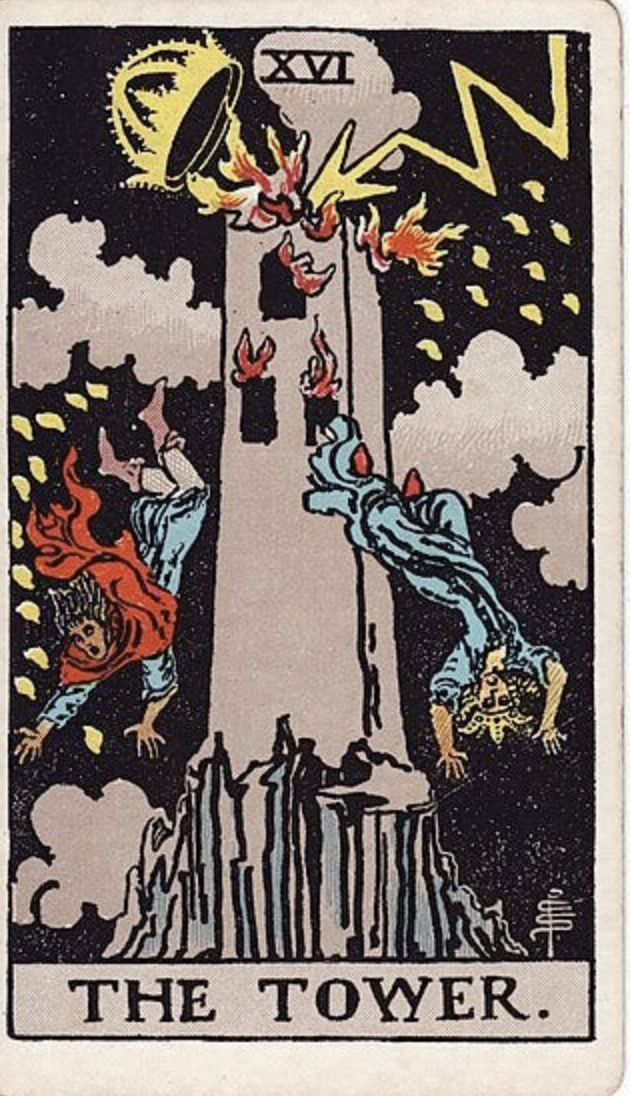
In many ways, my life defies logic.
They say only 10% of writers make a living solely from their craft, yet I earn over six figures annually without ever leaving my house. New York millennials have the third-lowest homeownership rate in the country, but I bought my home alone at 28. The odds of finding a literary agent are one in six thousand, yet I signed with one last October.
I wake up before dawn every day and work incredibly hard — but the truth is, I’ve been manifesting my dream life since I was 12 years old.
Manifestation is the practice of attracting more of what you want into your life through focused thought, clear intention, positive mindset, and unwavering belief. It’s a concept that gained widespread recognition in 2006 with the book (and later documentary) The Secret. And while the acting in that movie was abysmal, the idea resonated globally.
If you’re more spiritually inclined, manifestation is co-creating with the Universe and raising your energetic vibration to match the frequency of your goals. If you’re more scientifically inclined, it’s engaging your brain’s reticular activating system (RAS) to filter information relevant to your goals.
Either way, studies show that visualizing your ideal scenario can indeed help you achieve it — and positive affirmations are key to retraining your brain for health, wealth, happiness, and success. These are the insane things I tell myself that have helped me create a wild and beautiful life.
“I’m the exception.” #
Unfortunately, our brains are hardwired to focus on what’s wrong in life.
This is called negativity bias, and it was a necessary survival instinct back when we were cave dwellers. After all, if we only saw a delicious-looking berry bush and not the tiger crouching nearby, we’d become the tiger’s lunch.
But in today’s world, where we’re constantly bombarded with stress and negativity from the news, social media, work, and even our own minds, staying optimistic can feel impossible.
This phrase helps me combat negativity daily and makes me feel like I’m always lucky, simply because I’m me.
- English majors don’t get jobs? “I’m the exception.”
- You can’t make money writing? “I’m the exception.”
- No one can afford homes anymore? “I’m the exception.”
- Literary agents are impossible to find? “I’m the exception.”
- That publication only accepts 1% of submissions? “I’m the exception.”
- Most people on Medium only earn pocket change? “I’m the exception.”
And every single time, it’s worked out — because I decided it would.
“This is happening for me, not to me.” #

If you’ve ever dabbled in tarot, you’re probably familiar with The Tower card. It depicts a fortress being struck by lightning and crumbling. Sometimes, the illustration even shows people falling from it. The meaning of the card is that you’re about to experience sudden, destructive change.
Aside from Death or The Devil, it’s arguably the most frightening card in the deck — but also the most necessary. You see, before you can build a beautiful, expansive life, the old one has to crumble.
In other words, once you learn to see your “losses” as blessings directing you rather than punishing curses, your entire worldview will shift.
When I was laid off from my full-time job, I told myself, “This is happening for me, not to me.” The result? I’m now my own boss, working on my own terms, and earning significantly more than I did before.
When I was forced out of my previous living situation, I told myself, “This is happening for me, not to me.” I then found the small bungalow that became my sanctuary — and because it was during the height of the pandemic, I got a 3.3% mortgage rate.
When a string of dating prospects stood me up, fizzled out, or got cold feet, I told myself, “This is happening for me, not to me.” Now, I’m with a man who treats me better than I could have ever imagined, and I completely understand why those others didn’t work out.
“Let them.” #
I used to always feel responsible for other people’s happiness, so letting them make their own mistakes was incredibly difficult for me. And it turns out, I’m not alone in feeling this way.
Mel Robbins’s “Let Them Theory” has sold over four million copies since its 2024 launch, and for good reason: too many people (especially women) feel like they can only relax when everyone around them is comfortable and conflict-free — so we constantly try to fix everyone else’s problems.
But the truth is, if someone truly values peace, they won’t create chaos, and by absorbing other people’s discomfort, we’re not helping them. Instead, we’re preventing them from learning their own lessons.
Ultimately, the only thing you can control is your own actions and emotions, and constantly trying to micromanage other people’s lives will only prevent you from living your own. Whenever someone does something you might not approve of, Robbins suggests you tell yourself, “Let them.”
- Let your boss do something you know will backfire; you’re not paid to manage his ego.
- Let your friend stand you up again; people make time for what they care about.
- Let that guy ghost you after the second date; he’s just showing you who he is and saving you time.
- Let your child or partner forget their lunch again; consequences are a better teacher than nagging.
- Let your parents disapprove of your life choices; they’re not the ones who will live with the regret of unfulfilled dreams.
“How hard can it be? A man could do it.” #
If you’ve been following me for a while, you know I write a lot about women’s empowerment.
Just 50 years ago, women weren’t legally allowed to open their own bank accounts, and now, women earn 60% of college degrees and own 2.7 million more homes than men. Yet study after study shows that men consistently overestimate their skills, intelligence, and capabilities — and women consistently underestimate themselves.
Well, I’m not underestimating myself anymore. If a less capable man can handle it, then I absolutely can.
- Start my own business? How hard can it be? A man could do it.
- Buy a house? How hard can it be? A man could do it.
- Pitch myself as an expert guest on a podcast? How hard can it be? A man could do it.
- Publish a book? How hard can it be? A man could do it.
- Change a headlight? How hard can it be? A man could do it.
- Learn to use power tools? How hard can it be? A man could do it.
“People love me because of my vulnerability, not despite it.” #
I’ve been working to publish a book for 15 years now.
My first two manuscripts were Young Adult novels. To be honest, I took my life experiences and wrapped them in the facade of a teen drama because it felt safer than exposing myself directly. Then a medium suggested I write a memoir. (I know, I know, just hear me out.)
“No way,” I said. “Who am I? No one cares what I have to say, and no one wants to hear about my problems.”
She told me, “Your problems might help a lot of people.”
Ultimately, I listened to her. I went to trauma therapy and wrote the memoir. I started publishing personal essays about the most embarrassing, raw moments of my life. Now, that memoir is on submission, and my audience has grown to 17,000 followers and is growing daily.
As writer and researcher Brené Brown says in The Power of Vulnerability:
A sense of belonging is a human longing to be part of something larger than us. Because this longing is so primal, we often try to acquire it by fitting in and seeking approval, which are nothing more than hollow substitutes for belonging that often stand in the way of true belonging. Because true belonging only happens when we present our authentic, imperfect selves to the world.
This was the scariest lesson for me to learn. Scarier than starting my own business, buying a house, or learning to use power tools — because once you drop your guard, you’ll discover who loves the real you and who only stuck around for the façade.
Let them go. Remember The Tower card? Their departure will only make room for those who are truly meant to stay.
